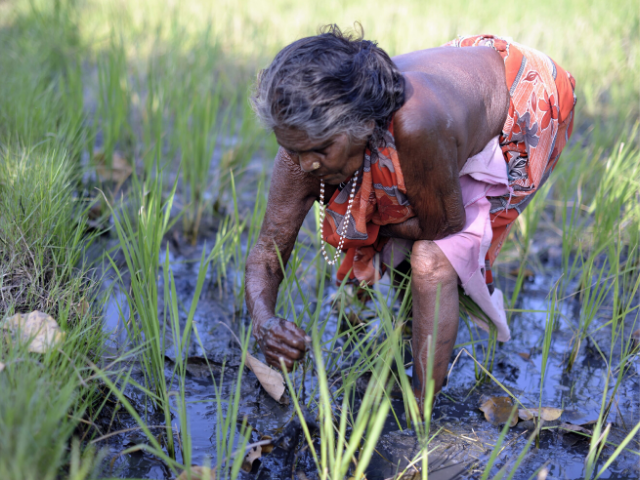Solidarity with peasants’ struggles for a sustainable world

The current health crisis highlights the failings of an economic system founded on unsustainable intensive farming which creates inequalities and exclusion. With a looming food crisis, the survival of peasant agriculture is at stake.
On this international day commemorating peasants’ struggles, Emmaus International reaffirms the challenge of its struggle for social and environmental justice for a sustainable world, and calls on governments to fully implement, without further delay, the United Nations Declaration on the Rights of Peasants and Other People Working in Rural Areas.
The Covid-19 health crisis highlights an acute political crisis created by a system that generates inequalities and makes the most excluded increasingly vulnerable. While recovery plans are being discussed at the highest level of international bodies to keep whole sections of the economy afloat, nothing is said about aid for precarious workers and peasants. Without an urgent response from governments, these populations are likely to be the most affected, as they are already facing situations of extreme poverty throughout the world – with no unemployment benefits, insurance or access to universal healthcare. Today, forced into lockdown, they are exposed to a serious lack of resources, resulting in a lack of access to water, food, and basic services which are too often unaffordable.
Therefore, in addition to acute health risks faced by workers in informal sectors and peasants, as recognised by the International Labour Organisation1, there is also a risk of an unprecedented food crisis. This could affect at least 113 million people, who were already facing “acute” food insecurity before the crisis, according to the United Nations Food and Agriculture Organisation (FAO)2.
In September 2018, Emmaus International held the first Forum of Alternatives led with the most excluded. The need to meet the objective of obtaining food sovereignty through agro-ecology serving the most vulnerable was strongly affirmed. This is reflected by concrete alternatives put forward every day by the Emmaus groups in India, Bangladesh, Benin and Chile. They include protecting traditional seeds, rejecting intensive agriculture that depletes water resources, making fertilisers and pesticides from organic matter so as not to resort to chemical inputs (and the debt these induce) and training in agro-ecology.
Via Campesina has led this commemoration since 1996 to pay homage to the peasants from the Landless Movement murdered on 17 April 1996. In solidarity with this commemoration, Emmaus International urges political decision-makers to fully implement the United Nations Declaration on the Rights of Peasants and Other People Working in Rural Areas, adopted in December 2018, not only to avoid weakening food-producing and self-sustaining peasant agriculture, but also to avoid a food crisis with devastating consequences.
[1] https://news.un.org/en/story/2020/04/1061322
[2] http://www.fao.org/news/story/fr/item/1269763/icode/